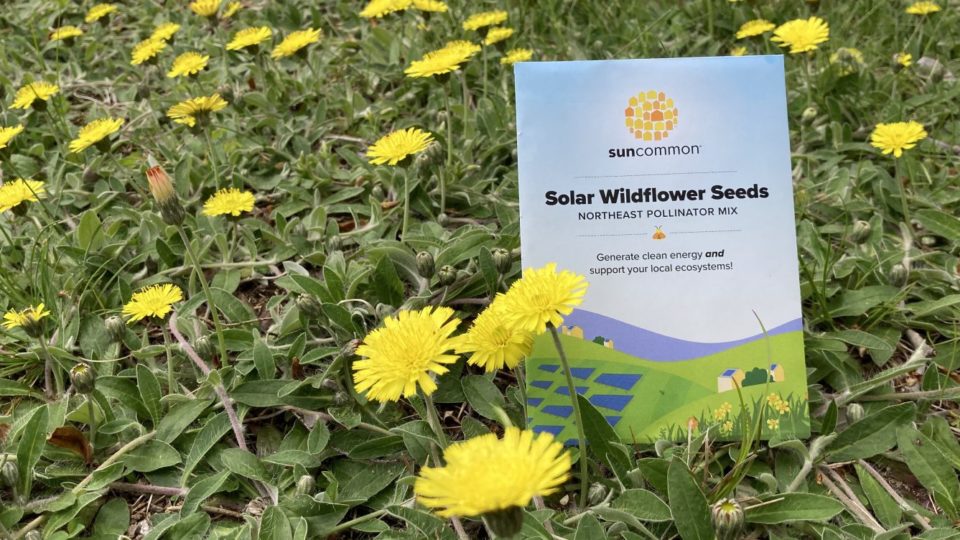Supporting Pollinators with Solar Wildflower Seeds
Did you have coffee this morning? Or maybe you had an after lunch chocolate chip cookie? Well, you have bees to thank for both; they pollinated the coffee beans and the cocoa plant!
Whether you know it or not, pollinators are an essential part of our lives. Without them we wouldn’t be able to produce a lot of the food and goods we count on. Worldwide, there are approximately 1,000 plants grown for food, beverages, fibers, spices, and medicines that need to be pollinated by animals to produce the things we depend on. But, in recent years pollinator populations have been declining. If the trend continues, this could put a strain on our food supply. Climate change, pesticide use, habitat loss and disease are to blame. But there’s good news! We can easily support our precious pollinators in our own backyard. That’s why we decided to work with American Meadows to produce a Solar Wildflower Seed mix that provides food and shelter for hundreds of important Northeast pollinators species. (We’ve even used these seeds at our Community Solar Array sites!)
This easy-to-grow blend contains 19 wildflowers, carefully selected to bloom from spring through to the first frost. There are 8 annuals for first year color and 11 perennials for beautiful blooms year after year. All seeds are 100% pure, non-GMO and neonicotinoid-free.
So, what’s in the mix?!
Butterfly Weed New England Aster Siberian Wallflower
Cornflower Lance-Leaf Coreopsis Plains Coreopsis
Cosmos Sulphur Cosmos Sweet William
California Poppy Purple Coneflower Indian Blanket
Wild Lupine Blue Flax Four O’Clock
Evening Primrose Red Poppy Black-eyed Susan Dwarf Catchfly
Interested in getting a seed packet? Fill out your information here!
Show Pollinators Some Love:
Supporting pollinators doesn’t have to stop with planting wildflowers either! Here are a few more ways you can show our pollinators some love, recommended by the USDA:
- Stop or limit the use of pesticides on your property – pesticides are toxic to pollinators.
- Leave dead logs around your property so that bees can nest in them.
- Put out a hummingbird feeder!
- Plant milkweed plants – Monarch butterflies lay their eggs on the leaves and feed on the nectar of the flowers.
- Pollinators need water too. Use a shallow dish or bowl with half-submerged stones for perches.
- Build a bat house to give our nighttime pollinators a place to sleep during the day. Bats are not only good for pollination, but they eat mosquitoes too!
Did You Know?
- More than 150 food crops in the U.S. depend on pollinators, including almost all fruit and grain crops.
- Worldwide there are more than 100,000 different animal species that pollinate plants.
- One out of every three mouthfuls of food in the American diet is, in some way, a product of honeybee pollination.
Want to do your part to help pollinators? Consider joining a Community Solar Array.
Or, if you’d rather have solar at your home, plant some native species near your array!
How Do I Go Solar
